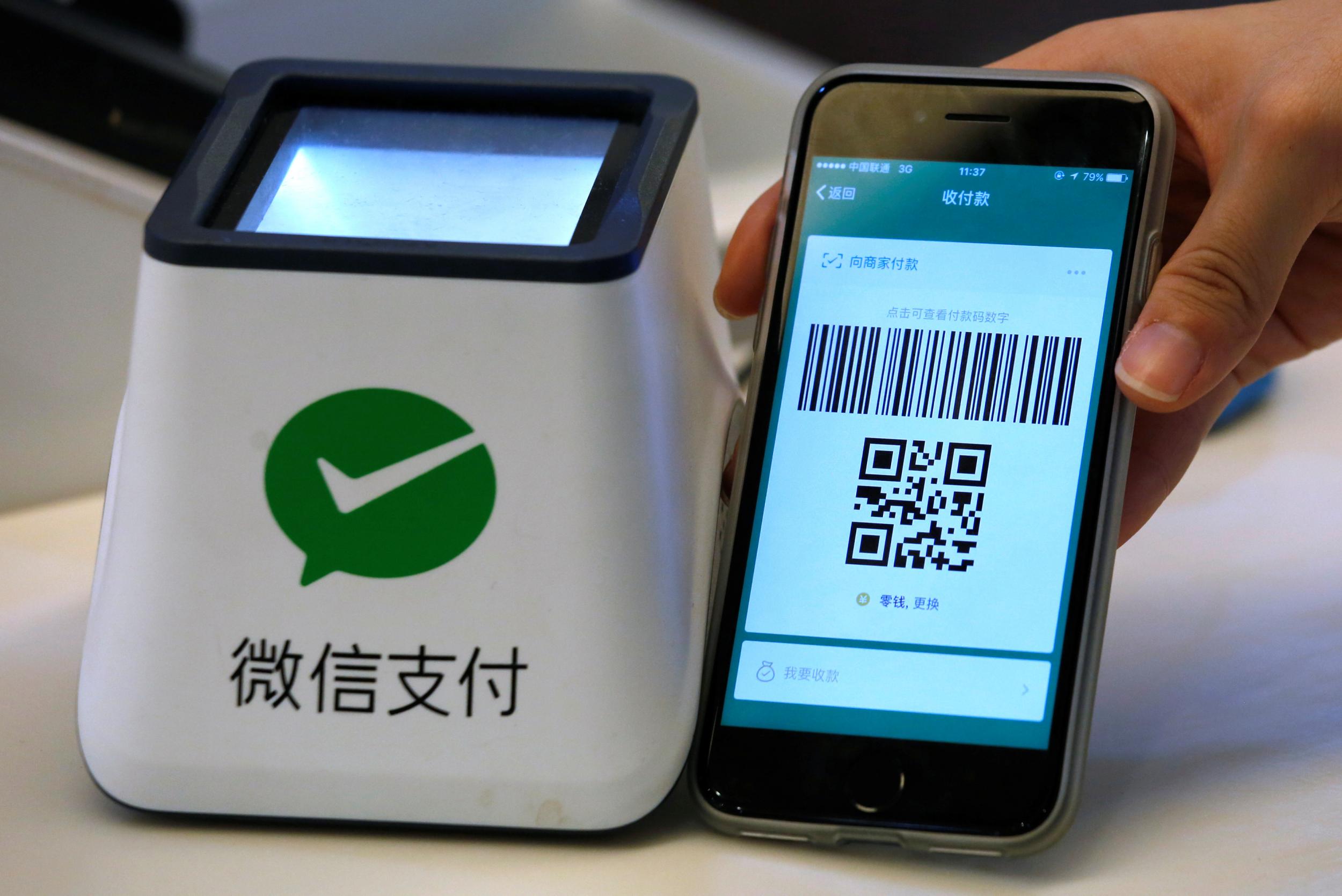China's Tencent has become more valuable than Facebook
The Chinese tech giant is battling rival Alibaba for new growth opportunities outside China

China’s biggest social network and gaming firm Tencent, which last week reported forecast-beating quarterly results, is close to making Malaysia the first foreign country to roll out its WeChat ecosystem, said an executive.
Tencent has made a “breakthrough” in gaining an e-payment licence in Malaysia for local transactions, and plans a launch early next year, senior vice president Seng Yee Lau said in an interview.
The move pits Shenzhen-based Tencent against rival Alibaba as they scramble for new growth opportunities outside China. Tencent this week became the first Asian firm to enter the club of companies worth more than $500bn (£377bn), and on Tuesday surpassed Facebook in market value.
“Malaysia is actually quite large in the sense that we have 20 million WeChat users, huge potential, and the market is quite warm towards internet products from China,” Mr Lau said.
Southeast Asia, home to more than 600 million people and some of the world’s fastest-growing economies, has been a key battleground for China’s tech titans fighting for deals. Ethnic Chinese make up more than a fifth of Malaysia’s population.
WeChat Pay and Alibaba’s Alipay, which dominate China’s digital payment market, have sought to expand their global footprint, although that push has so far been limited to payment services for Chinese outbound tourists. They can scan-and-pay for purchases in 34 countries or regions via Alipay, and 13 via WeChat Pay, according to the companies.
Alipay’s parent company Ant Financial has joint ventures in seven markets for local digital payments services, which operate independently under the partnerships’ brand names.
Alibaba is looking to build a global payment system, while Tencent is more interested in generating traffic for WeChat – two different strategies, some bankers and investors say.
WeChat has more users but Alipay’s aggregate transaction volume is higher, according to JP Morgan’s John Hall, though other investors note that WeChat Pay can also process large transactions if it’s used on e-commerce platforms.
GLOBAL EXPANSION
One challenge for Tencent, say analysts, is that its success in China cannot be easily exported to other markets.
Tencent is “not in a hurry” to speed up its overseas expansion or increase the monetisation rate of its digital assets, Mr Lau said.
“We walk our own path at our own pace ... and, to be honest, there is really quite a lot to do in China,” he said.
WeChat, which has ballooned from a messaging app to an all-in-one platform with 980 million monthly active users, could be the “killer product” to spearhead expansion abroad, Mr Lau said, as its embedded payment function draws more services.
WeChat, with an open platform of mini-programmes, was a key revenue contributor for Tencent in the third quarter. Social and other advertising revenue rose 63 per cent, while payment and cloud helped “other business” post a 143 per cent jump.
Honour of Kings, Tencent’s top-grossing battle game that led an 84 per cent increase in quarterly smartphone gaming revenue, also owes its success to the network help of WeChat, and is expected to find it tougher to crack Western markets, analysts say.
Tencent this month delayed the launch of the game’s US edition, Arena of Valor, to next year to “further polish additional gameplay and social features”.
After games and social media, most of Tencent’s other businesses are in digital content, including Spotify equivalent Tencent Music and YouTube equivalent Tencent Video, which also makes its own dramas.
CULTURE CHALLENGE
Mr Lau said the ultimate aim was to export culture from China to the rest of the world, rather than the other way round, which he acknowledged was challenging.
“What we’re aiming to create is ‘super IPs’ (intellectual property) that leverage our different businesses from upstream to downstream,” Mr Lau said, citing Disneyland and the James Bond films as successful practices in the West.
A big business for Tencent’s recently listed publishing arm, China Literature, is to sell its popular novels and have them turned into dramas and video games by Tencent’s other business lines.
Tencent this month announced a plan involving 10bn yuan (£1.14bn) of investment to boost its creative content ecosystem, though it gave no timeframe for the investment.
Company president Martin Lau – no relation to Seng Yee Lau – said on an earnings call last week that Tencent would keep investing in digital content, especially online video, to draw more time from more paying customers.
Overseas acquisitions will remain a key way of enhancing Tencent’s global access and competitiveness, Seng Yee Lau said.
Business news: In pictures
Show all 13Independent technology analyst Richard Windsor said Tencent’s 2016 acquisition of Supercell gave it a strong position in gaming, while the move to buy a stake in social media firm Snapchat is another piece in the jigsaw.
“It increasingly looks as if Tencent is embarking on a circumnavigation of the digital life pie in order to build an ecosystem to challenge the Google, Apple, Amazon, Facebook dominance of consumer digital services,” he said, noting it’s at a “super-early stage” in that process.
Tencent will likely seek more overseas acquisitions, Mr Windsor added, which, beyond being expensive, could challenge Tencent in integrating all its digital assets at home and abroad.
Tencent has struggled to monetise its dominance over Chinese digital life, he said, adding that’s why he sees more upside in Tencent’s market valuation, and prefers it to Alibaba.
Reuters
Subscribe to Independent Premium to bookmark this article
Want to bookmark your favourite articles and stories to read or reference later? Start your Independent Premium subscription today.

Join our commenting forum
Join thought-provoking conversations, follow other Independent readers and see their replies